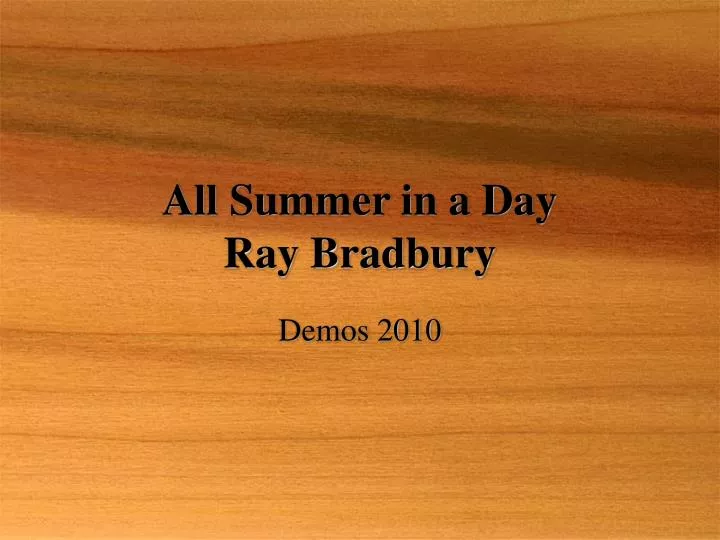

Though their cruelty is reprehensible, their jealousy is understandable-not only did Margot live on Earth for years before moving to Venus, but she also may return one day, as her family can afford the “thousands of dollars” it would cost to move back.

Bullying, therefore, is an expression of the children’s own sense of misfortune, as well as a twisted way attempt to fix a perceived injustice. Margot has been able to experience what they desired but were denied, and now they have the power to turn the tables. The nature of these specific acts of bullying shows that the children are motivated by jealousy. In this way, they deprive her of experiencing the sun, just as they felt they had been deprived. Then, they shut her in a closet to keep her from going outside-while the sun appears, she will be trapped in the dark. Just before the sun is set to come out, the children, again led by William, torment Margot by telling her that the predictions are wrong and the sun won’t appear. They act as if they have more knowledge of the sun than her, when the opposite is true. In order to undercut this advantage, William tries to discredit Margot, saying, “Aw, you didn’t write that!” Similarly, when Margot recalls that the sun is “like a penny,” the other children, led by William, say that she is wrong or lying. Because only Margot remembers the sun, her poem and recollections are the most true to life. As the classroom prepares for Venus’ short period of sunlight, Margot writes a clever poem about the sun.


The children are jealous of Margot because, while they can only speculate about what sunlight is like, Margot spent her early childhood on Earth. Their jealousy of her experiences leads them to a profound act of cruelty, which suggests that jealousy and deprivation, rather than outright hatred, are the engines of bullying. As sunlight is the experience that the children on Venus cherish the most, Margot becomes a scapegoat for the children’s frustration and longing. Margot, who moved to Venus from Earth several years before, has real memories of the sun, unlike her classmates who have seen only Venus’ constant rain. “All Summer in a Day” tells the story of a group of children ostracizing and bullying a child who doesn’t fit in.


 0 kommentar(er)
0 kommentar(er)
